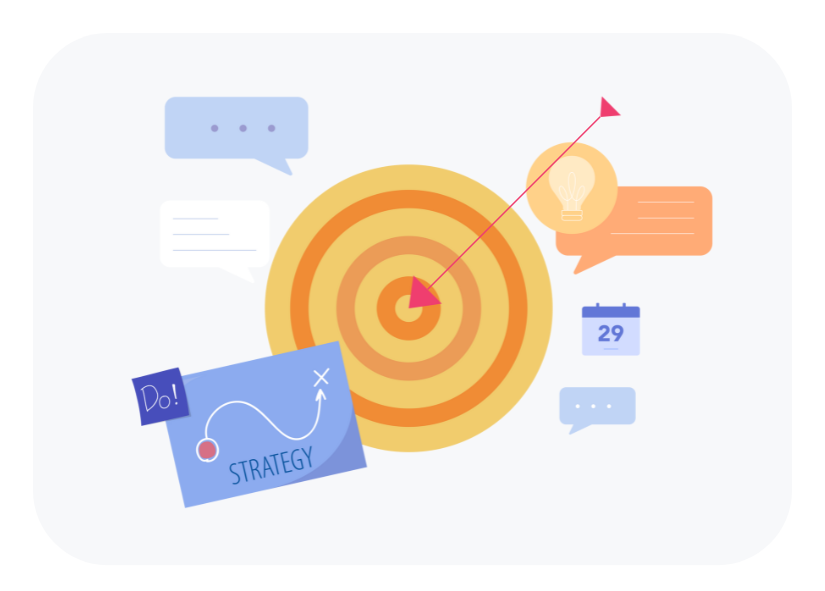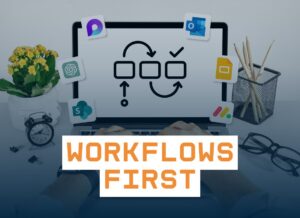4 ways that you can use Google Sites in your school
When you think of the Google Workspace suite of apps, Google Sites probably isn’t one of the first to come to mind. In fact, you may never have even heard of it before. But as you’ll read, Sites is a powerful tool that has a bunch of practical applications for teaching and learning. Being a Google app, it works beautifully with other apps such as Drive, Calendar, YouTube and more. Let’s take a look at some ways you can harness it in your school.
1.) Creating a class website
Google Sites is a brilliant platform for creating a class website that can be used to bring all of your teaching and learning content into one place.
- Teachers can create separate pages for their curriculum areas and subpages for each group
- ‘Tumbles’ for group rotation work can be displayed, meaning learners know what they’re doing in each learning time
- Use the ‘Full page embed’ feature to insert your favourite learning apps and websites as pages on your site, meaning learners don’t have to visit 3rd party websites
- Safeguard your young people by embedding curated YouTube videos or playlists where they can view content without getting side-tracked or ‘sucked down a wormhole’
- For secondary or specialist teachers, you can create a separate page for each of your classes or subject areas, dedicated to the teaching and learning content for that group
- Much, much more!
Also, changing the publishing setting to ‘anyone with the link can view’ will allow for parents/caregivers and other stakeholders in a child’s life to see what they’re up to at school – ‘removing the walls’ of the classroom and bringing these figures along for the learning journey.
I first stumbled upon Google Sites as a 1st year PCT (beginning teacher), desperate for a way to empower my 6 and 7-year-olds to take some ownership of their learning in a digital learning space. We had teaching and learning content, we had devices, we had apps and learning websites, we had rules for what we could and couldn’t do online. But we were missing a way of bringing it all together, without the need for double handling or extra work. Add to that the fact that I was sick of hearing “Mr Ferguson… how do I get to [learning app]…” or “Mr Ferguson… where do I find/can you please send me the link to [website], and I knew something had to be done. So, I experimented, and I created a super simple (and cringy…) links page. It was super basic, but it did the job. Fortunately, my next teaching role brought with it some opportunities for more Google PLD, including Sites, and so my knowledge and proficiency grew from there, along with the standard of my learning site.

When I talk to people about a learning Site, I always encourage them to think about a continuum with functionality at one end, and visual appeal at the other. Remember, the purpose of a learning site is empowering learners, and so you might find that it’s quite simple in the first instance. That’s ok! Have a go and see what you can create! Kids are great at giving feedback, too – just be ready for those we all know who are particularly “honest” with what they have to say…
2.) Sites for portfolios and records of practice/learning
Thinking back to my time as a beginning teacher, I’d have loved to have had the foresight to put all my beginning teacher portfolio work onto a Site. It would have been a much more effective way of curating my work than the clunky alternatives that I knew about at the time.
The same principle applies when it comes to learners. Sites can be an excellent tool for students to create an online portfolio to showcase their work. They can include samples of their work, such as pieces of writing, artwork, and multimedia projects, and provide descriptions and reflections as they go. The collaboration element allows learners to share their portfolio with others, such as teachers, peers, and potential employers. By using Google Sites as a portfolio tool, students can develop important digital literacy skills, such as website design, content creation, and digital organisation. What’s more, the nature of embedding files from their Google Drives means that files can be updated within the Google apps (Docs, Slides, etc) and have their changes automatically updated on their Site in real time!
Not only is the content creator left with a brilliant digital record of their work, but it’s super effective way of sharing effective practice with others.
3.) Create an internal site or ‘intranet’ for your staff
The same principle of a ‘1-stop-shop’ that as with a class website applies here too. Put all your Calendars, ‘day sheets’, ‘week ahead’ Docs, Health and Safety files, leave request forms, and anything else you can think of, all in one place that is easy for your staff. It suddenly becomes easy to find what they’re after, without having the bombarded email inbox.
Picture this, you can be rid of the days of senior leadership having to create a new Doc each day, record the information about who is away, and which relievers are in classes, which sports teams have practice at lunchtime, etc. Instead, start 1 new Doc, embed it onto the home page of the staff intranet, and now staff have access to that same information, but without the hassle of someone getting missed off the email list or not having the right access. And instead of trying to cram 30 different links onto your bookmarks bar, with all the duty rosters, assessments calendars, leave application forms and everything else, staff can have 1 place to go for all these things. Simply, a game-changer!
4.) Create a new school website that can be managed easily!
Often, I come across schools with very little ownership, nor autonomy over the content and upkeep of their school website. It’s generally the case where someone has to pick up the phone or send an email whenever content needs to be added or updated – this is obviously a vulnerable position for a school to be in, especially if the person on the other end of the phone or inbox is slow to act. This is where Google Sites can be used to create a simple and cost-effective website that your community will be proud of What’s more, with the help of some simple professional development, this can be managed internally by members of staff, meaning that you have complete autonomy over what is on your website at any time.
If this is something you’re interested in exploring, feel free to reach out to me for more information on how we could support your school. It really is as simple as building the website in the style and functionality that you want, passing on the published link on to your IT support provider, and letting them update things in the back end so that this new website is where people land when they head to your school’s domain – e.g. “schoolname.school.nz”
It might sound complicated, but I assure you it’s not!
We are finding that more and more of our schools are interested in learning more about how they could be better harnessing Google Sites in their schools, and we’re sure that there will be more out there! If you’re in this position and want to hear more, head to our website and set up a chat with one of our team!

















